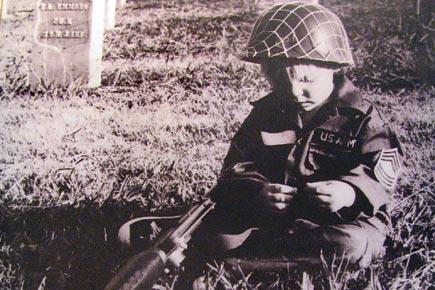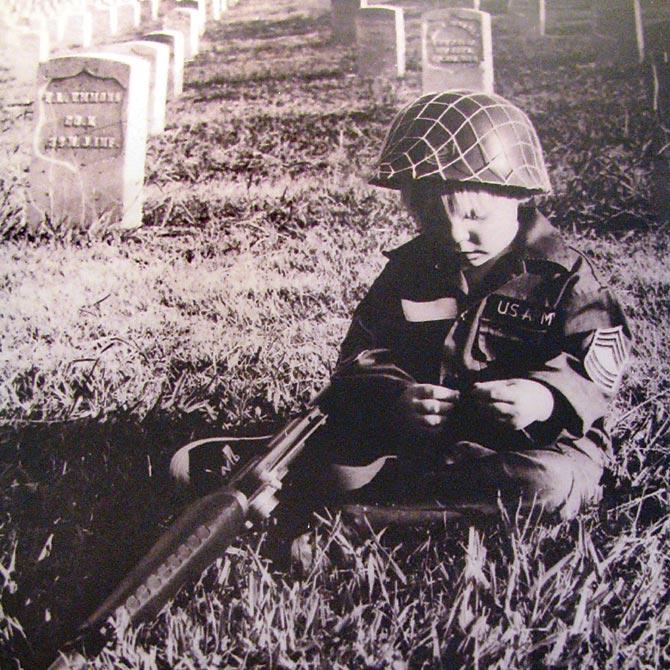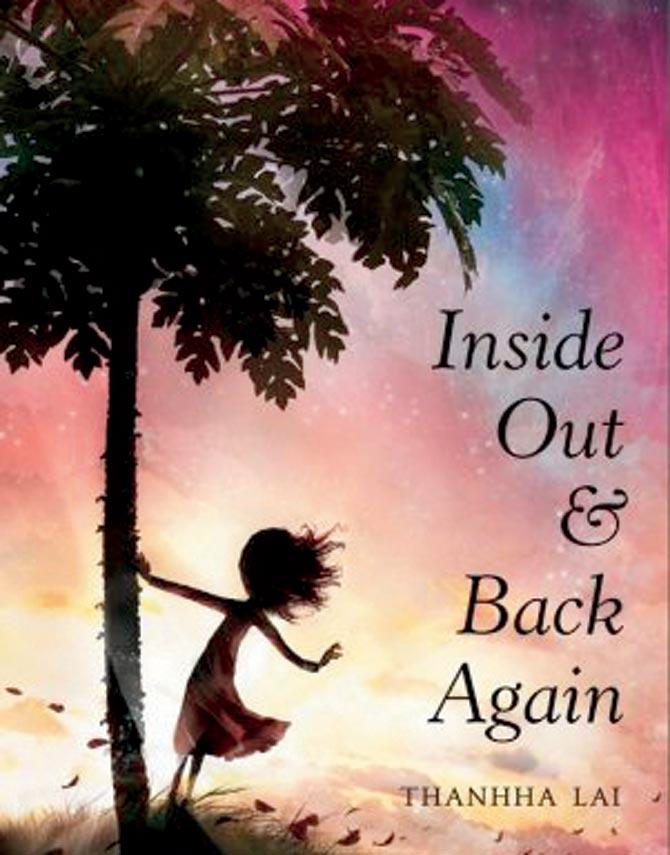A trip to the country makes Thanhha Lai's amazing debut title, Inside Out and Back Again, even more meaningful

A verse below this picture at the War Remnants Museum, Saigon reads: When I was a child/ I spoke as a child/ I understood as a child/ I thought as a child/ But when I became a man/ I put away children things
 Why do I wish I'd visited Vietnam last year and not last week? Because it would have changed the way we — my friend Rupal and I — talked with a bunch of pre-teen reading club kids. Some months ago, we'd met to discuss Thanhha Lai's amazing debut title, Inside Out and Back Again.
Why do I wish I'd visited Vietnam last year and not last week? Because it would have changed the way we — my friend Rupal and I — talked with a bunch of pre-teen reading club kids. Some months ago, we'd met to discuss Thanhha Lai's amazing debut title, Inside Out and Back Again.
Moved by the deceptive lilt that belies the grim truths on which this 2011 book is based, they were fully engrossed by the childhood experience of the author's flight from Vietnam at age 10 after the 1975 fall of Saigon.
Insightful as ever, the 11- to 14-year-olds' responses made us even firmer in our belief that if The Mozart Question by Michael Morpurgo and The Boy in the Striped Pyjamas by John Boyne provide a good introduction to Holocaust history for kids, Thanhha Lai's coming-of-age "novel in verse" does the same for a war, which children's writers seldom address.

A verse below this picture at the War Remnants Museum, Saigon reads: When I was a child/ I spoke as a child/ I understood as a child/ I thought as a child/ But when I became a man/ I put away children things
So, it was that everywhere I travelled, from Hanoi in the north to Ho Chi Minh City down south, the young book clubbers' comments on Inside Out and Back Again swirled in my head. Having called it a "crisply emotional" account of "a war the world must never forget", they found the story, told in short poems, compassionately traced a year of tribulation for Ha, the protagonist, and her family. The traumatic journey, from waiting in vain for a soldier father gone missing in action to their immigration to the United States, made the children share how unreal it felt leading the safe and sanitised lives they did.
Lines that especially moved them included: 'People share/ when they know/they have escaped hunger/Shouldn't people share/because there is hunger?' These left them "pricking with guilt" as one girl put it. Having too much should feel as bad as having too little, a boy beside her said softly, to which the group agreed. No deprivation stands as a block to growing sensitive...
"Mom says we've got too much too soon," another voice piped up. Sheepish to shamefaced, they were deeply jolted.
'To the millions of refugees in the world: may you each find a home' is the beautifully simple Dedication at the start of the book. The words assume a more particular poignancy in a world that has witnessed, in the past year, both a backlash against refugees and superhuman efforts to accept them.

The book is about the author's flight from Vietnam after the 1975 fall of Saigon
Earlier this week, our first guide in the country we're touring is clearly overwhelmed as he tells my husband and me how his sister had a brush with death at Brussels; she was safe only because she was using the restroom when the airport exploded. We trail him into the War Remnants Museum at Ho Chi Minh City. There, along with the Howitzers and fighter jet planes which dropped dioxin and napalm bombs ruthlessly, relentlessly, we see with pride photographs of Indian women activists on marches protesting America's brutal aggressions next to an iconic still of Rajendra Prasad and Nehru welcoming Ho Chi Minh to Delhi in 1958.
A short hop away, we visit a shop which showcases much more than its wares. It's where the second generation of war victims make handicrafts to sell at such outlets across the land. Coping bravely with being struck maimed or mute from the ravages of twenty years of savagery from 1955-75, they urge twisted limbs to deftly weave silk, embed lacquer, paint fine brushstrokes. Once again, I long to take these impressions to the children back home.
Notions of solidarity and support can stem from true understanding of diverse cultures alone. The bullying Lai describes Ha going through, on her family being forced to move from a refugee camp to Alabama in the US touched a chord with the kids. Seeing how Ha and her brothers endure derogatory nicknames like Ching Chong, one book clubber drew a revealing parallel — "Isn't that like us labelling all South Indians 'Madrasi' or our North Easterners 'Chinks'?"
That session had ended on a warm note with the kids attempting to live up to Ha's (and, presumably, Lai's) exhortation at the book's end. 'Sit close to someone you love/and implore that person/to tell and tell and tell their story.' Pairing off in close interaction, the children chose to open up personally to each other. From "My longest day" and "The time I was most relieved", to "My most rewarding moment" and "What I feel really bad about", their real-life episodes were in turn tender, dark, funny and, above all, honest. "We should do this with the family," a few suggested, returning the compelling candour and depth of Lai's book to the real world. A world that's bigger and meaner than their understanding of it.
Write in to Meher at: mehermarfatia@gmail.com
 Subscribe today by clicking the link and stay updated with the latest news!" Click here!
Subscribe today by clicking the link and stay updated with the latest news!" Click here!







